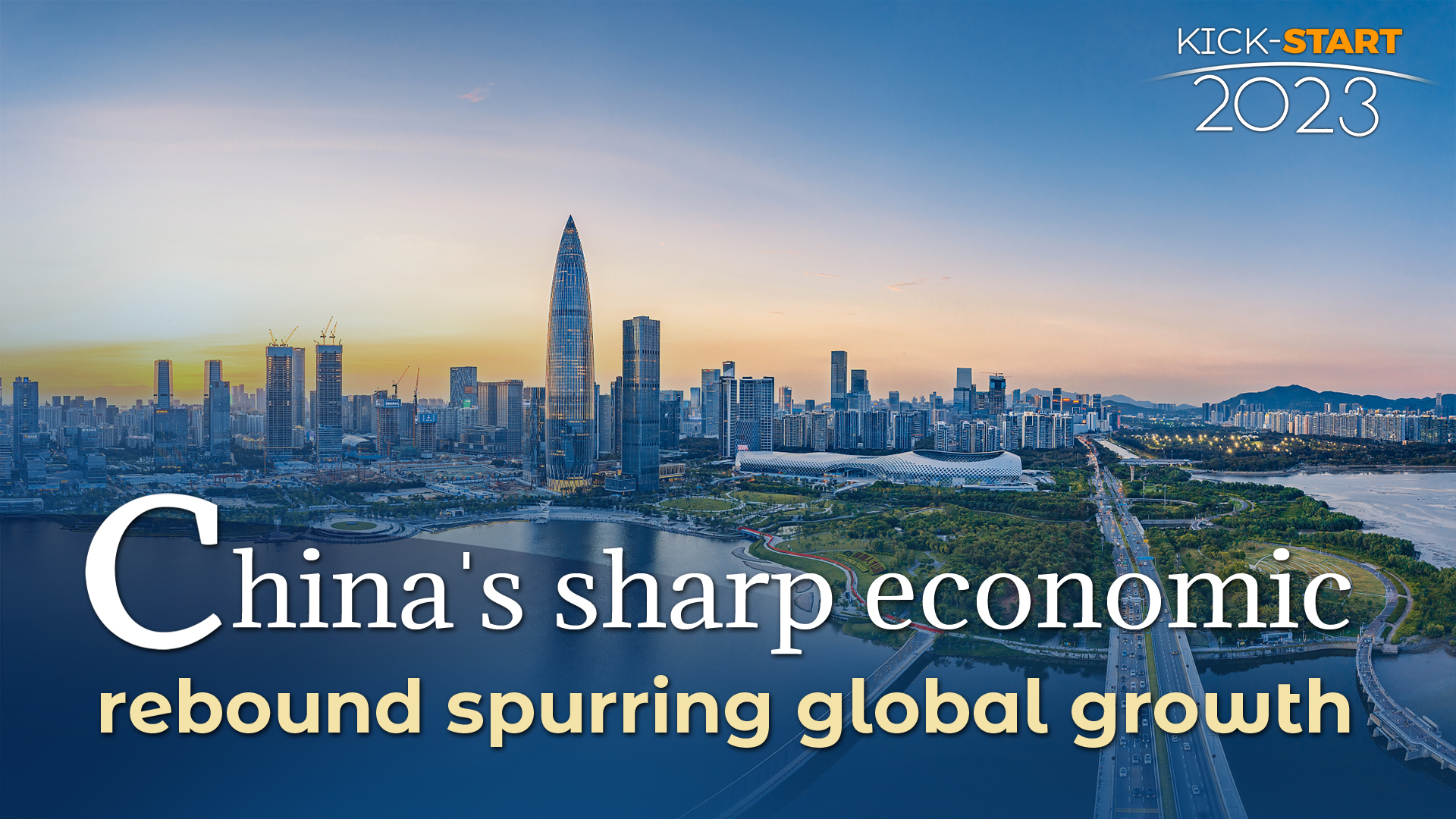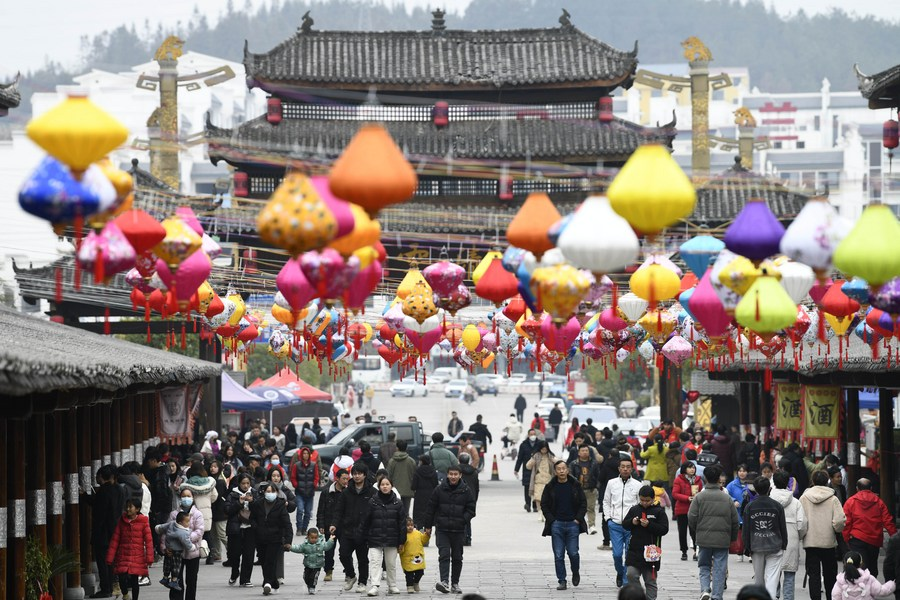
China is on its way to economic recovery with the rebound in travel and consumption. Residents are going back to offline stores and planning more trips this year.
During the Spring Festival, the first major holiday after the country eased its COVID-19 curbs, travelers made 308 million domestic trips, a 23.1-percent increase from last year, rebounding to nearly the level in 2019 before the pandemic, official data shows.
Meanwhile, the movie box office made a strong comeback. Its revenue reached nearly 6.76 billion yuan ($998.5 million) during the Spring Festival, the second-highest grossing in the same period of all time.
The robust and sustainable growth in China provides a welcome lift to the global economy, said Steven Barnett, the IMF's senior resident representative in China, during an interview with CGTN.
For instance, Chinese traveling abroad is a big lift for economies that rely on tourism, he said, adding that as China grows faster, it buys more goods from other countries.
"So that's a spillover effect. It lifts up other country's growth."
Consumption-led growth
The Chinese economic recovery will be primarily driven by consumption, as households have re-engaged in activities previously hampered by the pandemic, according to Fitch Ratings, a New York-based credit rating agency.
The surge in consumer spending is represented by domestic retail and catering revenues of key enterprises in sectors like oil and food, clothing and vehicles, which rose 6.8 percent from 2022.
Restaurant dine-in increased by 15.4 percent compared with last year, with average consumption per restaurant rising by 10.8 percent year on year, data from the Ministry of Commerce shows.
"China has a large number of groups with strong purchasing power," said Yan Yilong, assistant dean of the Institute for Contemporary China Studies under Tsinghua University, noting that China has huge market potential with over 400 million middle-income residents.
"It is expected that China will enter the ranks of high-income countries at the end of the 14th Five-Year Plan period (2021 to 2025)," said Yan, adding that the consumption structure will be further upgraded with the increase of per capita income.

People tour Jiuzhou ancient town in Huangping County, southwest China's Guizhou Province, January 26, 2023. /Xinhua
People tour Jiuzhou ancient town in Huangping County, southwest China's Guizhou Province, January 26, 2023. /Xinhua
With high consumer demand ramping up domestic production, the manufacturing sector expanded in January after three consecutive months of shrinkage, according to the National Bureau of Statistics (NBS).
Data from the NBS shows that the purchasing managers' index (PMI) for China's manufacturing sector was 50.1 in January, up from 47 last December.
The PMI for China's non-manufacturing sector came at 54.4 in January, increasing over 30 percent from last December.
The Chinese economy has been buoyed by a combination of fiscal and monetary stimulus, including large-scale investments in infrastructure and the relaxation of monetary policy, which enables businesses to access financing more easily.
The country takes measures that support service businesses and self-employed individuals, promotes cross-border e-commerce, and forms an incentive mechanism to encourage the investment of enterprises, according to the State Council.
Through years of structural reform, the Chinese economy has been going through a high-quality and high-value-added transformation, Yan told CGTN.
China will maintain the competitive advantages of a huge domestic market, a complete industrial chain and strong economic resilience in the medium-to-long term, he said.
According to Yan, China's economic rebound will make it the world's largest growth engine, according more export opportunities to other countries.
Driving the global economy
According to the latest forecasts by the International Monetary Fund (IMF), the Chinese economy is projected to grow from 3 percent in 2022 to 5.2 percent in 2023, driven by a rebound in private consumption.
While noting China still faces some economic challenges, including the contraction in real estate and uncertainty around the evolution of the virus, the IMF said China can play an important role in strengthening global trade openness and transparency.
The consumption is expected to deliver "the most crucial support" to China's economy this year, wrote Chen Jiahe, chief investment officer at Novem Arcae Technologies.
According to Chen, as one of the world's most important trading nations with a large volume of imports and exports, the growth of China's economy offers strong support to the sluggish global economic forecast for 2023 and will bring spillover effect to many other countries.